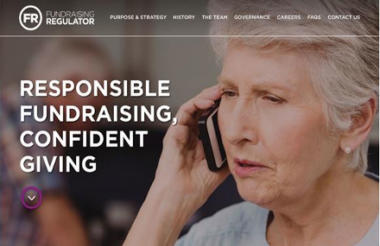Less than a week after it officially launched, the new Fundraising Regulator has been thrust into the centre of another scandal. With the future of fundraising self-regulation at stake, Hugh Radojev says it cannot afford to fall at the first hurdle.
That same old sinking feeling, the same old lurid headlines: ‘Sun Investigates: Charity Thugs Targeting Vulnerable OAPs” on the front page of todays' edition. Then, inside: “‘He literally mugs them’ Charity firm hires drugged-up ex-criminals to ‘squash’ old and vulnerable for donations’”.
One year on from fundraising’s self-proclaimed ‘summer of discontent’ and again, one of the sector’s chief antagonists – The Sun – is exposing dodgy practices and the targeting of the elderly and vulnerable by employees of a third party fundraising agency. This time at Neet Feet – a street fundraising agency.
Alongside the usual allegations of harassing the elderly and infirm, this latest piece also claims to have uncovered a culture of drug taking and dealing amongst some of the agency’s employees as well as braggadocio claims by other senior fundraisers at the agency of signing up elderly people with ‘No Cold Calling’ stickers, “three day cocaine benders” and violent criminal histories.
Given that these allegations have yet to be fully substantiated they must be viewed through the prism of ‘innocent until proven guilty’. Yet, as everybody in the sector will remember from last year, the truth and veracity of these allegations matter little to those who read the redtops and will no doubt filter out into the rest of the media.
With public trust and confidence in the sector already at demonstrably low levels, lurid stories such as these will only hit harder and resonate louder with many in the public.
The timing of the Sun’s piece feels entirely pre-meditated and was in some ways predicted by both employees of the Fundraising Regulator and some in the sector during last week’s IoF Fundraising Convention.
Rumours of an immediate attack on the sector to coincide with the launch of the new regulator have been borne out.
Worst of all for the Fundraising Regulator, it has no excuses now. Lord Grade declared at its launch event on Thursday that it was “open for business”, and the gathered dignitaries praised the speed with which it had established itself and promised a better, brighter future for fundraising self-regulation.
William Shawcross, chair of the Charity Commission, even mused that “the horrors of the last year are behind us”. A statement he may well regret having made now.
For all the talk though, the Fundraising Regulator isn’t entirely up and running. It is currently still looking for its own office space and was only recently in the process of interviewing to fill a number of positions within the organisation.
In short, the Fundraising Regulator is not fully prepared nor operating at full capacity, and the Sun was no doubt fully aware of this.
This will also prove a test of the recently signed Memorandum of Understanding between the Fundraising Regulator and its “regulatory backstop” partner in the Charity Commission.
Whether or not this investigation ever reaches the ‘third line of defence’ is almost beyond the point; the Commission will be as much in the media glare as the regulator in this. It must do more than just be seen to do its part.
Both Stephen Dunmore, interim chief executive and Gerald Oppenheim, interim head of policy respectively at the Fundraising Regulator, have done a huge amount of work to soothe, cajole and bring around an originally sceptical sector in the last six months. For them the real work begins now.
The sector will no doubt hope that Lord Michael Grade - who has been very vocal with his thoughts and feelings regarding fundraising in general - will stick to the script in the coming days.
Based on past experiences though, that seems unlikely.
It seems that the Sun has taken it upon itself to strike the first blow at the new self-regulatory structure of fundraising. It would be madness not to anticipate that the Daily Mail, Times and Telegraph will likely follow suit.
The sector cannot afford the Fundraising Regulator to fall at the first hurdle. Nothing less than the future of self-regulation is already at stake.
Related articles












